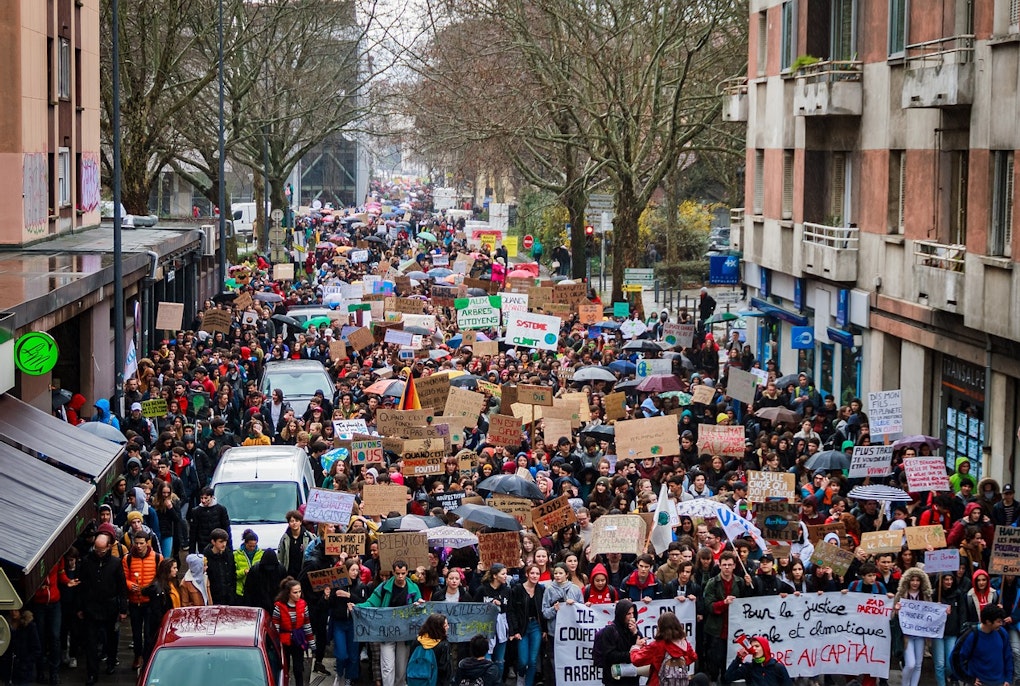
myCIVIS: lokales eGovernment im Spannungsfeld nationaler Systeme



I recently spent a weekend in Palermo with a close friend. We met at the airport, picked up a rental car, and headed to our Airbnb in the city center. My friend, an Austrian with a stereotypical Italiensehnsucht, sported an outfit straight out of The White Lotus: a light linen suit with an unbuttoned shirt, chic sunglasses, and a patterned ascot. As we neared our accommodation, I asked him to take off his scarf. We're in Sicily, I reminded him, a place with historically higher levels of homophobia compared to the North where I study. Southern Italy is also more religious, and the Pope had just made headlines for using an anti-gay slur in a meeting with the country’s bishops. I worried we were too identifiably gay.
Our host helped us park among the banged-up cars. As we stepped out of the vehicle, he asked if we were a couple. My friend and I exchanged a quick glance, both doing the instant risk assessments and mental gymnastics familiar to most queer people. We had to decide how to portray our relationship – our identities – to this stranger who quite literally held the keys to our holiday. Without missing a beat, I said we were friends from university. My friend, also instinctually quick to respond, said we were colleagues on a business trip. To be clear, we are not a couple. But we still felt the need to distance ourselves as much as possible from the assertion that we might be gay. Our host knew this social performance well. "Relax," he said, "I'm gay too."
Was our self-censorship justified? Perhaps. In Italy, and more broadly across the world, there has been rising conservative resistance to expanding civil liberties for LGBTQ people. Over the last three decades, the rights of those marginalized by their sexual orientation and gender identity have improved rapidly in many countries. This progress has been met with an increasingly globally connected opposition. As the politics around gender and sexuality become more normalized, populist actors gain more ideological ammunition to justify their mobilization efforts. This kind of anti-gender mobilization is part of a larger culture war, where neoliberal hegemony is being challenged by various anti-establishment movements from both the right and the left. Such movements often claim to rejuvenate democracy by giving a voice back to "the people," with right-wing populism favoring exclusionary definitions of who constitutes this populace and left-wing populism advocating for a more pluralistic approach. Gender and sexuality, Graff and Korolczuk contend, is at the heart of this political realignment.
These dynamics play out quite clearly in Italy. The country has experienced a period of political turmoil marked by growing support for far-right and populist parties that are fiercely opposed to gender equality. The anti-establishment Five Star Movement (M5S) and right-wing nationalist party Lega gained significant traction beginning in 2013, and for some time held power in a coalition government. Giorgia Meloni’s Fratelli d’Italia – which stems from the neo-fascist Italian Social Movement but has more recently been classified as a radical right party – also rose to prominence, ultimately becoming the country’s largest party after the 2022 general election. In last week’s European Parliament elections, Meloni and Fratelli d’Italia emerged as clear winners, securing strong gains while the parties of France’s Macron and Germany’s Scholz suffered resounding defeats. While Lega and the M5S saw declines in the most recent election, the far-right still holds a strong majority thanks to Meloni’s leadership.
Gender and sexuality issues are central to the political identity of the Italian right. The Vatican traditionally influenced social consensus on LGBTQ rights. However, with the Catholic Church prioritizing other social and economic issues under Pope Francis, Italian public discourse today is largely shaped by its populist parties. Both Giorgia Meloni and Matteo Salvini of Lega exemplify this shift in how they advocate for "traditional family values." They leverage political communication – particularly through speeches, press coverage, and social media – to craft strong public images and foster direct connections with their supporters. Their political discourse supports traditional models of femininity and the natural family as fundamental to the social order. The nation is equated to the domestic community through the metaphor of the family, with men seen as public protectors and women as caretakers of biological and social reproduction.
While Salvini tends to use the image of a weak woman to legitimize the presence of a strong male leader, Meloni uses a maternal image to legitimize the presence of a woman who is a mother and fighter, once famously declaring, "Io sono Giorgia, sono una donna, sono una madre, sono italiana, sono cristiana." Despite these differences, both reinforce dominant gender stereotypes and exhibit framing typical of broader right populist movements, which leverage moral, religious, and family-values rhetoric to appeal to conservative segments of society. Such rhetoric creates an environment of marginalization, where symbolic boundaries are delineated between an in-group of good, traditional followers and an out-group of bad, immoral adversaries.
Unsurprisingly, these dynamics have contributed to setbacks for LGBTQ rights in Italy. Since assuming power, Meloni has advocated for children to be raised solely by heterosexual parents. Same-sex couples in Italy do not have the legal right to adoption or surrogacy. Meloni’s government has moved to criminalize seeking surrogates in other countries, closing a loophole that previously allowed adoptions abroad. The right’s framing of this issue tends to focus on the exploitation of women – Salvini, for instance, likened surrogacy to using cash dispensers – but critics argue it is part of a strategic attack on LGBTQ rights. Additionally, the Meloni government mandated that councils register only biological parents on birth certificates. A state prosecutor in Padua subsequently sought to retroactively invalidate 37 birth certificates of children with same-sex parents, which could have resulted in non-biological mothers losing access to their children if the couple separated or the birth mother died. Judges dismissed this proposal, allowing children to have two mothers listed on their birth certificates.
At this year’s G7 summit in Italy, Meloni faced criticism from her counterparts for her stances on LGBTQ rights. Unlike the previous year’s summit in Japan, the final declaration did not include a reference to protecting the “gender identity and sexual orientation” of the LGBTQ community. Meloni’s office denies removing this language. This denial is contradicted by the government’s recent positions. Most explicitly, Italy was among nine EU countries that refused to sign a declaration promoting European policies in favor of LGBTQ communities, presented by the Belgian presidency to the EU member states. Members of Italy’s Department for Family Policies justified the refusal by comparing it to the domestic Zan bill, a piece of legislation proposed by Italian politician Alessandro Zan that aimed to make homophobia and transphobia punishable offenses but ultimately did not pass. Critics, including the Vatican, argued that the bill could infringe on religious freedoms and freedom of expression.
These instances contribute to Italy ranking 35th out of 49 European countries regarding laws and policies that impact LGBTQ rights.
As we observe Pride Month, a time meant for reflecting on and celebrating diversity, it becomes clear that the Italian populist right's narrow definition of "the people" marginalizes gender and sexual minorities. Meloni and her government, in a Janus-faced manner, insist that "the problem is absolutely not the sexual orientation of people." If there's one thing Pride teaches us, it's to live authentically. Meloni must confront her truth: discrimination disguised as tradition is still discrimination.

This content is licensed under a Creative Commons Attribution 4.0 International license except for third-party materials or where otherwise noted.




 Verena Richardier
Verena Richardier
 Martina Trettel
Martina Trettel